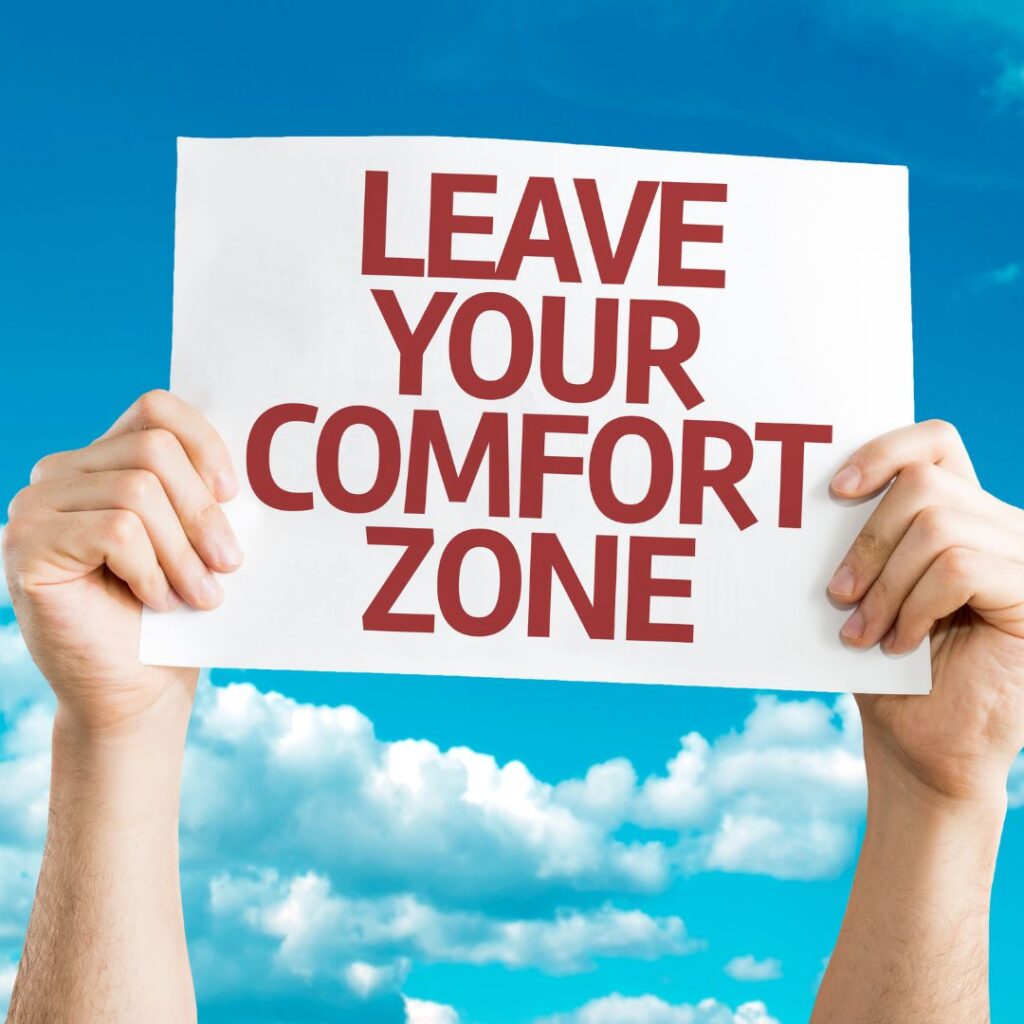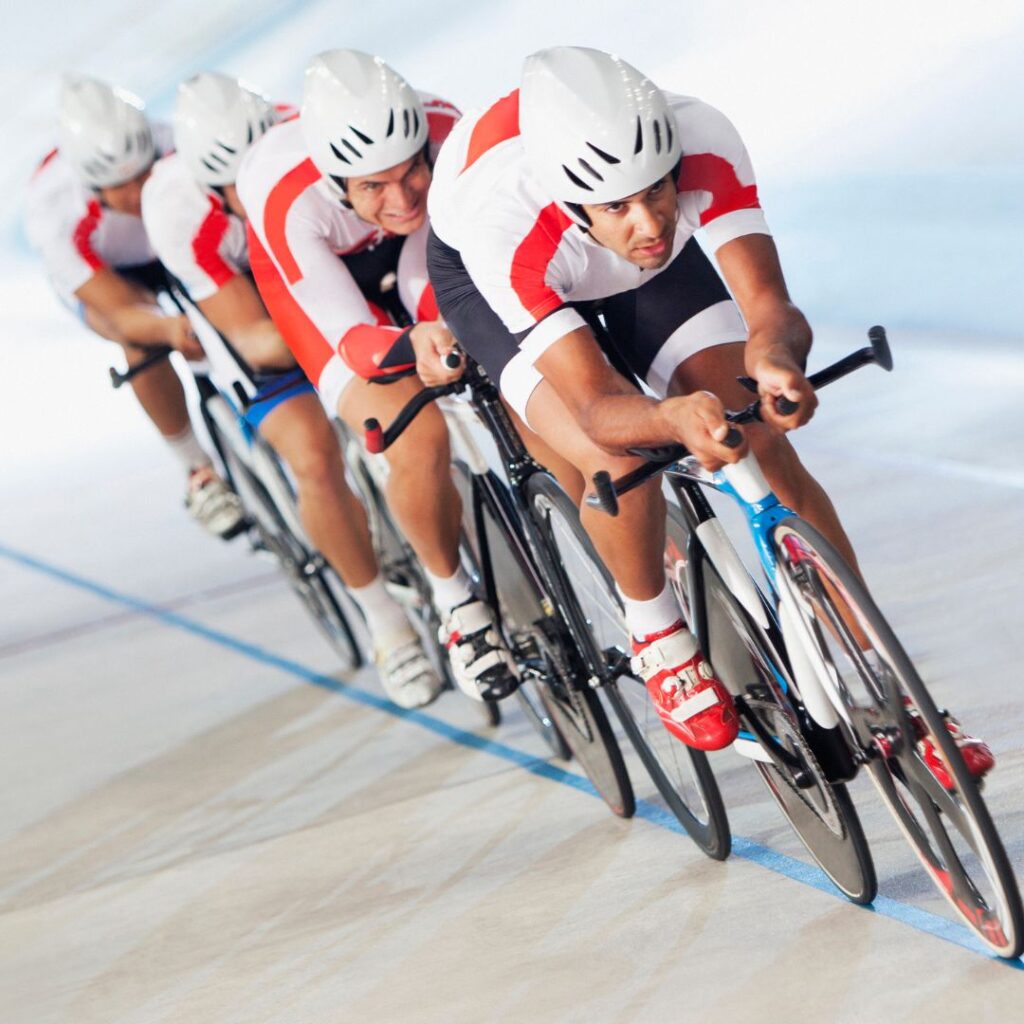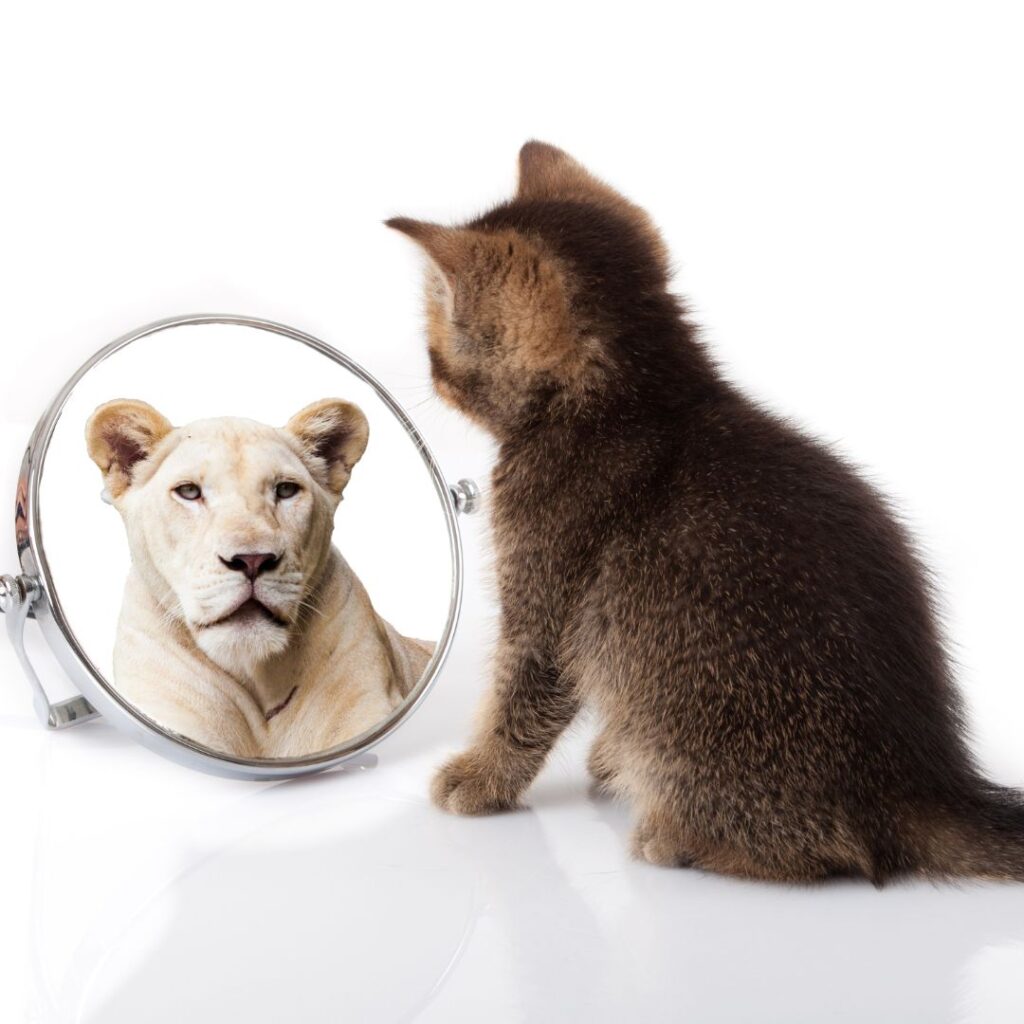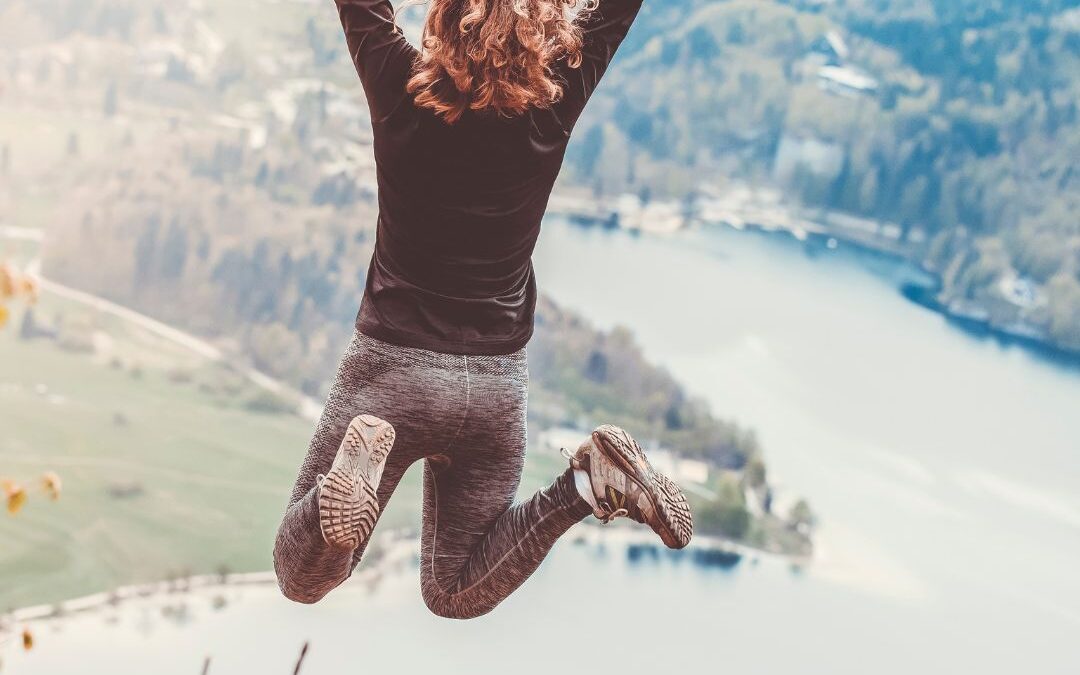Self-confidence is often included as one of those essential traits of leadership. A confident leader is able to hold and communicate the team’s vision, provide a steady hand when things get rocky and objectively assess risks, and when climbing the corporate ladder or applying for that dream job, confident people often have the advantage over their not so confident colleagues or fellow candidates.

Confidence allows you to project that sense of don’t worry, I’ve got this. I’ve got this, is the premium currency in the corporate world. You’ll find lots of guidance on improving confidence.
Try googling, how to be more confident at work and you’ll read things like, leave your comfort zone, set goals for yourself or learn new skills. This is great advice, but it’s missing that crucial first step.
leaving your comfort zone
The step that very few people ever talk about. When you think about leaving your comfort zone, how does that thought make you feel? This is the clue. Most of the time, it’s not a comforting thought, right, but our mind wants us to stay comfortable, because comfort equals safety.

So, we stay for a while, or maybe a long time, but we have that constant nagging thought. What if? Until one day our desire to soar far exceeds the imprisoned comfort we’ve created for ourselves. We step to that metaphorical edge of the cliff and we look down. Self-doubt creeps in.
Don’t look down on what you fear the most. Look out. Look at what it is that you want because your mind is working 24/7 to create the experiences that will give you what you want. It doesn’t know you’re focused at the bottom of the cliff because you don’t want to go there. It doesn’t understand negatives.
It thinks, that’s what you’re asking for, and so its job is to bring that thing to you, so stop focusing on what you don’t want. So, for example, you’re planning your first product launch and you’ve got that constant thought of oh, well, if this doesn’t work out, I can always go back to temping as a PA. Your mind hears, rule out the business success and bring me a temporary PA contract. Done.
competence breeds confidence
The more you do something, the better you get at it. The better you get at it, the more confident you become. The more confident you are, the better you get at that thing.

One of the reasons cyclists train for speed by hanging off the back of a motorcycle is that they get to complete a large number of sprints at the desired speed without getting too tired. Their mind gets comfortable because it says, oh, I’ve done this loads of times before, I can do this.
Competence breeds confidence. Now, if you’re that cyclist, you feel confident cycling at that speed and the more confident you are, the more assertively you’ll ride.
In high-performance coaching. We call this the competence-confidence loop. Competence breeds confidence. Confidence boosts competence, but what about the first time the coach says, you’re to hang off the back of his motorcycle on your bike in that velodrome? What if you’ve never got to over 50 kilometres an hour on your bike before, there’s an important step that comes before the competence confidence loop. It’s called courage.
courage
Courage happens when we feel fear and do it anyway, large and small. Your heart’s pounding so hard you can hear it in your ears. Your mouth is dry. You take a breath and you speak up in the meeting anyway, and that act, while seemingly small to others, is a huge, courageous act to you and by taking that step, you learned something new.

I didn’t die, some people even nodded. I didn’t embarrass myself, and at that moment I learned it’s safe to speak up. Every act that takes you out of your comfort zone is a courageous act.
Finding a way to do one courageous act every day, no matter how large or how small, you begin to develop the identity of somebody who has courage, and those courageous acts can be things like going to the gym or going back to the gym. Learning something new, having that conversation you’ve been putting off.
It can also be internal things, deciding it’s safe to feel your feelings, listening to what your body is telling you, and finding your own voice. So, let me ask you these two questions. First of all, if you had even more courage than you do now, what would you stop doing right now? Sometimes the most courageous thing we can do is to choose not to be busy.
What happens when you provide yourself with the luxury of space? What thoughts come up when you’re simply sitting and reflecting just because you’re not listening to your inner dialogue on a conscious level, it doesn’t mean that you’re not carrying the weight of the inner conversation on the daily. My second question is, if you had even more courage than you have now, what would you start doing?

What random acts of courage could you build into your day? For example, what if every time you looked in the mirror, you gave yourself a wink and you said, I’ve got this, and you really did mean it. Invest in yourself by building your courage muscle.
Actively seek out opportunities and give them a go. If you enjoy them, do them more than once, knowing that the first time you do it. It’s an act of courage, maybe even the second or third time. But you know it, it’s not scary, and you’re becoming competent.
The secret ingredient to confidence is knowing deep down that you’ll find a way. The higher you’re finding a way scoreboard, the more confident you’ll be.

